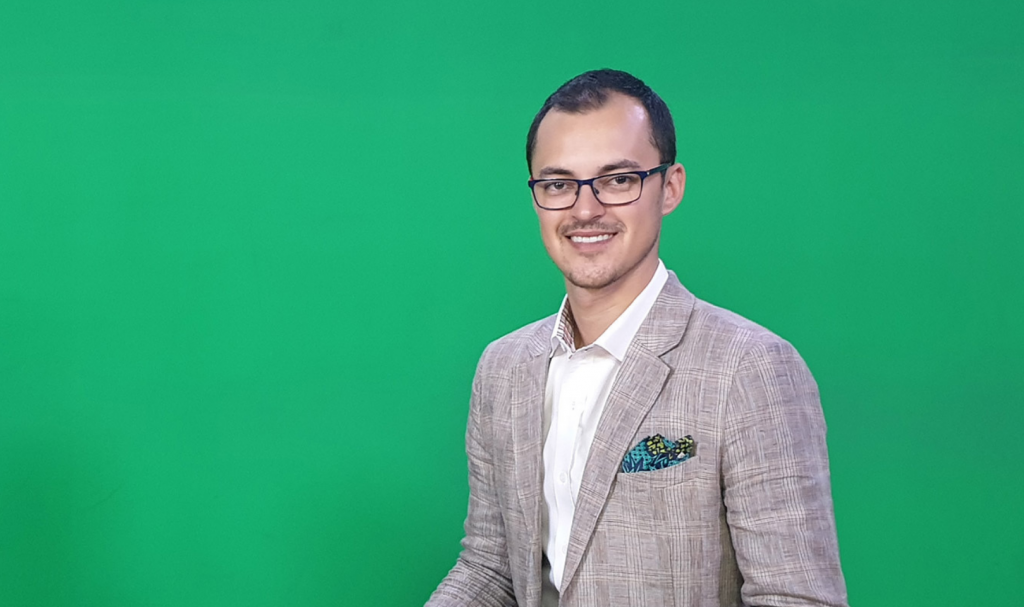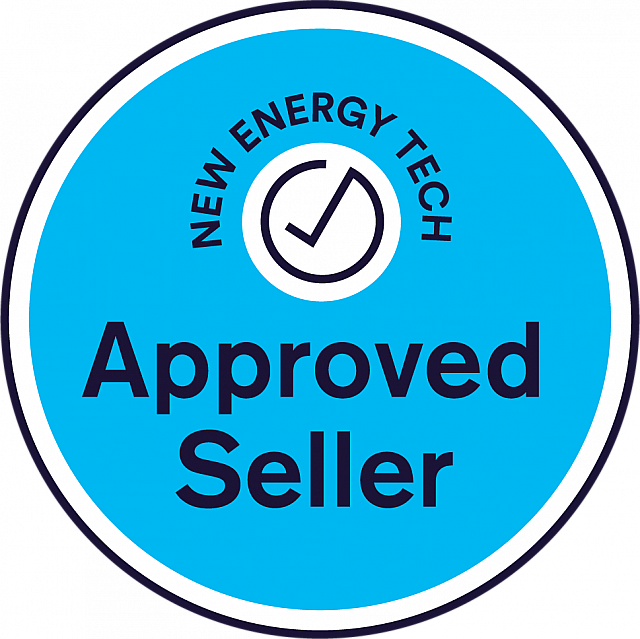Host:
Energy retailers are charging the highest grid power prices in the world, and Australians have had enough. Software billionaire Mike Cannon Brookes has stepped in with plans to make renewable energy a major issue at the next election. One company changing the game is ShineHub, a solar marketplace that has been dubbed the Airbnb of energy. Co-founder Alex Georgiou joins us now. Alex, welcome to you. Thanks for being here. What is ShineHub?
Alex Georgiou:
ShineHub is a solar marketplace that helps customers find the best products, payment options, and local solar companies in their area as part of our community solar programs. And what we do there is we bring solar and battery bulk buys to the community to dramatically bring down the costs of these systems to the point where even on a pay as you go plan, you’re able to actually get solar and battery power for cheaper than grid power in a lot of cases. This allows the mass adoption of these kinds of systems, and once they’re installed, then we build virtual power plants so we can dynamically share that stored battery power with the community.
Host:
There was a lot in that. I feel like you probably touched on a few of the answers to my next question just there, but what were the problems or what haven been the problems with Australians going solar?
Alex Georgiou:
What we’ve found is that customers are really interested in solar and especially battery technology, but they don’t know what’s best for them. It’s a lot of different products out there and payment options and solar companies. Most people only go solar once, and they don’t really know what to do. By finding a new way where they can understand it really easily, have everything in one place, what we’re finding is it much, much easier for them to make the decision to go ahead.
Host:
There’s sort of two things at play when people are considering solar, isn’t it? There’s one, there’s this sort of conscience and wanting to be green about the way they source energy, but there’s also the cost of it too, isn’t it? Installing solar is a pretty significant barrier to getting it moving.
Alex Georgiou:
Yeah, it definitely is. And it’s what’s prevented a lot of people from getting solar and especially batteries now that they’ve come in as well. That’s why the bulk buy is so important because by grouping together, instead of going one by one, you actually group together as a community and buy a few hundred at a time. And what that means that you can actually bring down the cost to where it’s extremely affordable. And we’ve also introduced some really innovative pay as you go options that make it cheaper than grid power today even with no money up front.
Host:
Can you reel off some of those price points? Like how much it costs to sort of get on board initially and what the sort of savings are that you can make as you go along?
Alex Georgiou:
Yeah, definitely. A typical home paying a $500 a quarter right now over the next 25 years is set up to pay on $88,000 if they stay with the grid. And so with a complete solar and battery system, you can get that for around $12,000 to $15,000 if you pay up front or if you put it on a pay as you go system and you can get it for around $28 to $35 a week.
Host:
And what’s the kind of the longer term project here? I understand that when you sign on with ShineHub, you sign on for quite a while. How does that work?
Alex Georgiou:
Well, there’s actually a few different options. Our goal is really to help bring everything together in one place. In the same way that you would go find a flight, and you’d go to kayak.com and punch in what you need and you have all the different options there, that’s what we’re trying to provide. The first step is finding which products are good for each particular customer.
It’s very similar to buying a car. You can buy a sports car, an SUV – same thing with batteries. So we figure that out first. Then they can either buy it outright, do a personal loan through some of our partners. Everyone can choose any payment option they want.
Host:
Is this mainly aimed at people who know where they’re going to be living long term? What if you could be moving around a bit?
Alex Georgiou:
What we’re finding is that a lot of people plan to move five, seven years down the track. The great part about these systems is that they’ll often pay themselves back in that time. If you stick around in the house, you have free electricity, but if you sell, then the new buyer will enjoy free electricity too. So it helps you in the sales process if you decide to move.
Host:
But does it potentially add another layer of complexity there in that sales process? In a kind of a real estate transaction, do people really know how to then talk about energy prices and solar panels, all these sorts of things?
Alex Georgiou:
What we’re finding is that people are really informed now about energy. It’s been such a hot button topic and there’s been so much coverage on it, and the price of electricity has gotten so high that people are aware of what’s going on. And because of that, they are very conscious that the cost of a home is not just the mortgage payment anymore. It’s the mortgage payment and the electricity bill. And by bringing down electricity costs or having a home that doesn’t have electricity costs, they see that home as being much more valuable.
Host:
And hearing Mike Cannon Brookes championing renewable energy, that must be music to your ears this week.
Alex Georgiou:
Oh, it was fantastic. I mean we’ve been talking about it on a community level, and to see that on a national stage and really calling out what is important and what we can do right now, it’s great to see.
Host:
Do you find it astonishing that we’re so far behind with solar energy in Australia, that this isn’t something we’ve been doing for decades and doing to a much greater market penetration than what we have?
Alex Georgiou:
Yes and no. I think first, there’s a lot of solar panels installed in Australia, one of the most in the world per capita. The issue has been the battery storage and how we can start to share that power and shift that daytime solar into the evening. So places like Europe, Germany, the Netherlands are a bit ahead of us here, but we are one of the first countries in the world that is pioneering this, and it’s why it’s so exciting to be here right now.
Host:
You mentioned before that ShineHub is a virtual power plant, which is something I haven’t heard before. Can you elaborate on that?
Alex Georgiou:
Yeah, we’ve developed a virtual power plant software. To start off, what is a virtual power plant? It’s a good place, right?
Host:
Yeah, let’s start there.
Alex Georgiou:
Really simply, the way electricity works is a lot of people are using electricity, and the electricity companies need to provide power to them. And they do that by turning on power plants and coal, gas, etc. Once in a while, people use a lot of energy all at once. Think about a 40 degree day, everyone comes home and switches on the air con, and all of a sudden the grid needs to supply a lot of power really quickly. Well, they keep turning on power plants that do that, but that’s very costly and from a carbon perspective, very inefficient.
What a virtual power plant does is it provides an alternative to that. If you imagine a thousand homes with batteries in let’s say Sydney, which we’re building right now, then that is a lot of stored battery power that’s available. And the software we’ve created is a downloadable app that connects into those systems and communicates. Whenever this happens and the grid needs more power, they can actually buy it from that collective battery rather than turning on that last power plant. And every time they do that, the home battery power is shared with the community, and the homeowner gets an extra payment on their bill.
Host:
And how many people are doing this in Australia?
Alex Georgiou:
There’s a lot of pilot projects right now. What we’ve found when we tried to introduce this two years ago is that the cost was a huge, huge barrier. There’s some hardware options out there that you have to install as an add on to be able to connect into these virtual power plants.
Host:
And then what’s the cost of the hardware?
Alex Georgiou:
About a thousand dollars fully installed. And because we’re only able to get around a hundred dollars per year per customer at the moment, that’s cost prohibitive for most people. So we set out to build a better version that doesn’t require extra hardware. With this cloud-based software solution, we can connect straight into the battery without any additional costs. What that means is that homeowners will be able to download a free app and just literally connect. “Yes, I want to be part of this.” And every time their battery is used, they’re making extra money.
Host:
It’s an interesting business and an interesting kind of project of yours. I’m curious about you though, Alex, because we’re sitting and we’re hearing your American accent. I’m wondering about the Silicon Valley of it all, startup entrepreneur. I mean, how did you come to start this business?
Alex Georgiou:
Well, I’ve always been interested in renewable energy, and I wanted to make that shift happen. Kind of be on the front line, so to speak. I started my career in Silicon Valley in the States – I joke that I’m a recovering American now. I came here six years ago to up to Australia, fell in love with the country, the people, the geography, and just the attitude, that kind of fairness, that message. That really, really stood out to me. And that’s really aligned with solar and batteries in my opinion too because to me, this energy system is not fair, and it’s controlled by a few big companies, and I want to shift that to individuals and communities. Combine that with the fact that solar and batteries in Australia is one of the first places where it’s cost effective, and I thought, wow, what a better place to build a life, build a family, and help rebuild the energy future for Australia.




